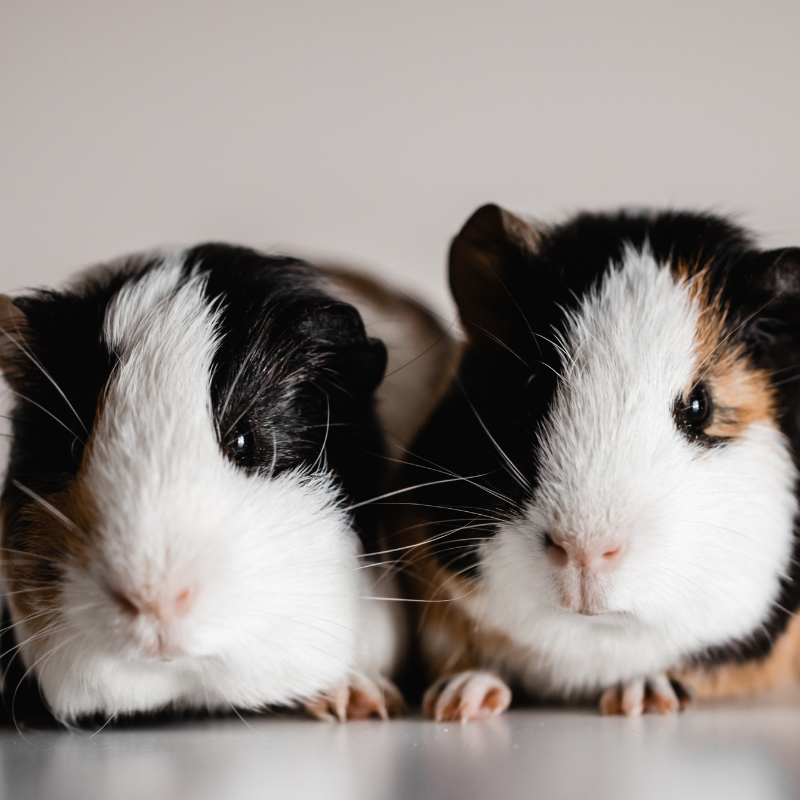

· By Platts Pets
8 Essential Tips for Caring for Small Pets
Looking for essential tips for caring for small animals? Look no further than our guide to pet care made easy.
We have gathered top tips and insights to simplify the responsibilities that come with being a small pet owner.
Whether you are a seasoned caretaker or new to the world of pint-sized companions, join us as we explore essential guidance to help your pet thrive in a comfortable environment.
Read more below…
1. Bedding

Caring for your small animal includes using suitable bedding to provide comfort and absorbency.
At Platts Pets, we have developed premium pet bales, produced to the highest quality and they are completely dust-free.
Our wood shavings offer a soft and cushioned bed for your small animal, ideal for hutches and cages.
Secure your natural pet bedding for your small animal today!
2. Nutritious Food
Nutritious food is crucial for the health and well-being of small pets like hamsters, rabbits, guinea pigs, and other small animals. Each species has specific dietary requirements, so it's essential to provide a well-balanced and appropriate diet.
For hamsters, commercial hamster pellets are specifically formulated to meet the nutritional needs of these small pets. Rabbits require high-quality hay which should be the primary component of a rabbit’s diet.
Guinea Pigs are much like rabbits in that they require a significant amount of hay in their diet. You can also supplement their diet with vitamin C-rich foods, such as bell peppers and kale.
Always consult with a veterinarian for specific dietary recommendations based on your pet's age, health, and individual needs.
3. Small Pet Grooming
Grooming for small pets is essential for maintaining their health and wellbeing. Grooming needs do vary across the different types of small animals; however, general tips include:
- Fur brushing
- Nail trimming
- Ear cleaning
- Teeth maintenance
If you're unsure about how to groom your specific small pet or if you encounter any health concerns, consult with a veterinarian who specialises in small animals.
4. Cleanliness

Maintaining cleanliness is crucial for the health and well-being of small pets, and adopting proper hygiene practices helps prevent the spread of diseases.
Establishing a regular cleaning routine for your pet's cage is essential. Remove soiled bedding, uneaten food, and waste daily.
Our natural pet bedding offers various benefits, including minimising mess and simplifying cleanup, controlling odour, and enhancing air quality.
The dust-free nature of the bedding contributes to effective odour control, and the absence of fine particles eliminates concerns about dust settling on nearby surfaces.
This bedding also fosters a clear and more breathable atmosphere, ensuring that your small pet thrives in a comfortable and healthy environment.
Remember to use pet-safe cleaning products to maintain the wellbeing of your small pet. A mixture of white vinegar and water serves as an excellent pet-safe cleaning solution.
5. Small Animal Interaction and Socialisation
Next on our guide to caring for your small animal are interaction and socialisation tips. Whilst the level of socialisation varies between species and individual animals, providing a positive social experience enhances their wellbeing.
Begin socialisation of your small animal as early as possible. This allows them to become accustomed to human interaction. Remember to keep interactions short initially and gradually increase the duration as your pets become more comfortable.
Offer treats during and after positive interactions and use a calm and reassuring voice to reassure your pet.
Be sure to tailor your approach based on their personality and preferences and if you have any concerns, consult with an experienced small animal specialist for guidance.
6. Health Monitoring

By closely observing your small animal's behaviour, physical condition, and surroundings, you can detect potential issues early and promptly seek veterinary care when necessary.
Engage in daily observations and stay vigilant for any changes in behaviour.
One key advantage of our natural pet bedding lies in its positive impact on respiratory health. Our dust-free wood shavings minimise particles, reducing the risk of respiratory problems.
Another notable benefit of our small pet bedding is its ability to prevent respiratory irritation. Dust particles often cause discomfort for both you and your pet.
Our bedding ensures a cleaner and healthier living environment, promoting overall well-being.
7. Exercise and Activities
Small pets benefit from regular exercise and engaging activities to keep them physically and mentally stimulated.
Create a secure play area outside of your small animal crate for supervised playtime and offer tunnels and hideouts. These provide both a sheltered space and an opportunity for exploration.
Climbing structures, platforms and ramps are great for some small pets, whilst hamsters love an exercise wheel.
Digging boxes filled with bedding material are also ideal for guinea pigs as they enjoy foraging for their treats.
8. Temperature Control
Our next caring for small animal tips is around maintaining the right temperature. To do this, you must gain an understanding of what preference your small animal thrives in.
Small animals generally thrive in temperatures ranging from 18 degrees to 24 degrees, however, it is essential to know the ideal range for your particular pet.
Avoiding extreme temperatures and sudden changes can be stressful, so maintain a consistent environment.
Of course, keep small animals indoors and away from drafts and direct sunlight, and avoid placing crates near radiators.
During the summer months, offer cooling options such as ceramic tiles, cooling pads, or frozen water bottles wrapped in a cloth.
Caring for Small Pets FAQs.
What is a good indoor pet?
Hamsters are low maintenance and are relatively easy to take care of. Guinea Pigs are generally social and enjoy companionship; they are very docile and friendly creatures!
Rabbits are the best trainable of the small animals and are very social with their owners.
It is important to remember that the suitability of a small pet depends on several factors, such as living space, lifestyle, and preferences. Our natural pet bedding has several benefits that make indoor living an excellent choice for your small pets!
What small animals are the easiest to take care of?
Generally, some small animals are considered relatively easy to care for, especially for beginners or those with busy lifestyles. Rabbits, guinea pigs, hamsters, gerbils, mice and chinchillas can all be easy to take care of.
However, it is important to remember that before getting any pet, it's essential to research their specific needs, understand their behaviours, and ensure you can meet their requirements for space, nutrition, and social interaction.
Ready to make small pet care easy? Follow our Instagram for further tips and adorable moments. Plus, enhance your small pet's comfort with our natural pet bedding today!
